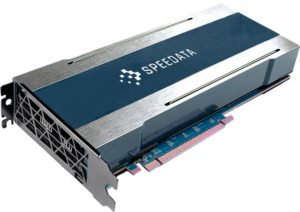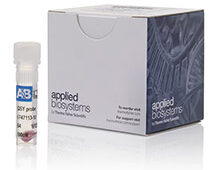 Speedata, whose first-of-its-kind Analytics Processing Unit (APU) is designed to accelerate big data analytic workloads across industries, has announced the results of a simulation of its APU on a compound similarity analysis workload in the pharmaceutical industry. Using the APU, the analysis was completed in 19 minutes, compared to 90 hours when using a CPU — a 280x faster result.
Speedata, whose first-of-its-kind Analytics Processing Unit (APU) is designed to accelerate big data analytic workloads across industries, has announced the results of a simulation of its APU on a compound similarity analysis workload in the pharmaceutical industry. Using the APU, the analysis was completed in 19 minutes, compared to 90 hours when using a CPU — a 280x faster result.
Compound similarity analysis is a key workload in the drug discovery process. However, like many complex workloads, general processing units take a long time to compute big data analytic queries. This is largely due to three main bottlenecks: input/output, compute, and memory. By speeding up compound similarity functions for drug-target interaction predictions, the Speedata chip can enable the analysis of much larger datasets, thus expediting the research process and bringing life-saving drugs to market much faster.
“I saw firsthand how Speedata’s APU is opening the door for breakthroughs in pharmaceutical and health research,” said Mark Ramsey, managing partner of Ramsey International and former Chief Data Officer of GSK. “With the unprecedented performance of this accelerator, analyzing data for drug discovery can be done in minutes, not hours — with endless lifesaving implications. This is only the beginning of hardware acceleration use cases in the pharmaceutical space for Speedata.”
For the compound similarity analysis workload, the simulation utilized nine million compounds on 100 servers. Compared to a standard CPU on the same number of servers, Speedata’s APU successfully sped up the workload by a factor of 280 and completed the analysis in 19 minutes compared to 90 hours. Speedata also measured the same analysis on a single server with 4 APUs which was completed in 8 hours. In other words, instead of using a data center with 100 servers running for 4 days, the analyst could run this workload on a single machine overnight.
Speedata’s APU alleviates the main bottlenecks of data analytics, significantly improving the speed and performance when analyzing such workloads, dramatically reducing costs, and increasing efficiency. The APU’s unique architecture is compatible with all legacy software, allowing for seamless migration of workloads, with no changes necessary to an enterprise’s code or existing framework.
“The results are a strong indicator of the capabilities of our APU, particularly in the pharmaceutical industry, where speed and efficiency can expedite time-to-market significantly,” said Jonathan Friedmann, co-founder & CEO of Speedata. “Pharmaceutical workloads are just one example of the many data analytics workloads our processor can accelerate across critical industries. We look forward to helping companies, data centers, and cloud providers improve their data analytics capabilities. These results portend an even bigger future for big data.”





pieces of work need to be separated into meaningful relationships, not held to business standards…